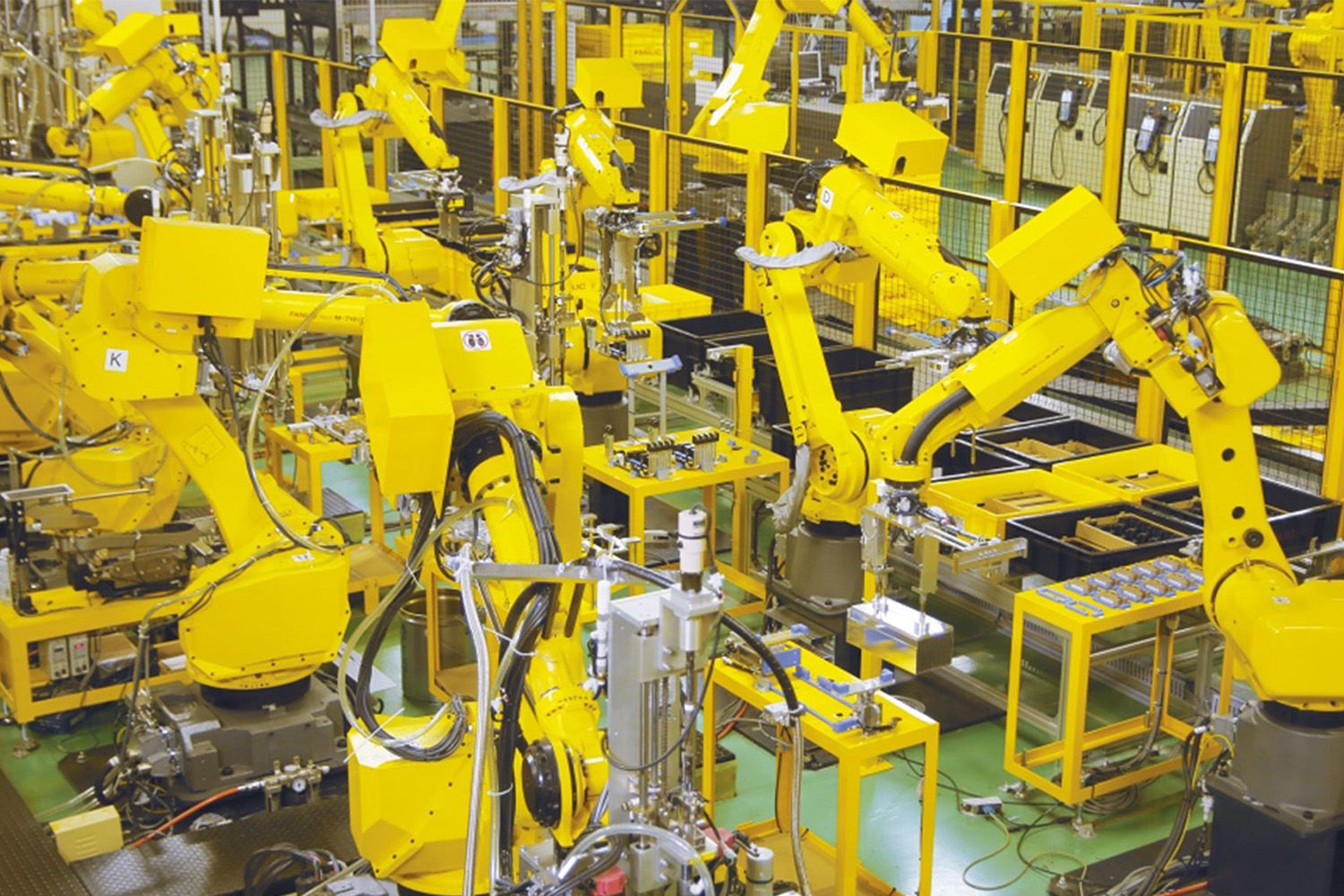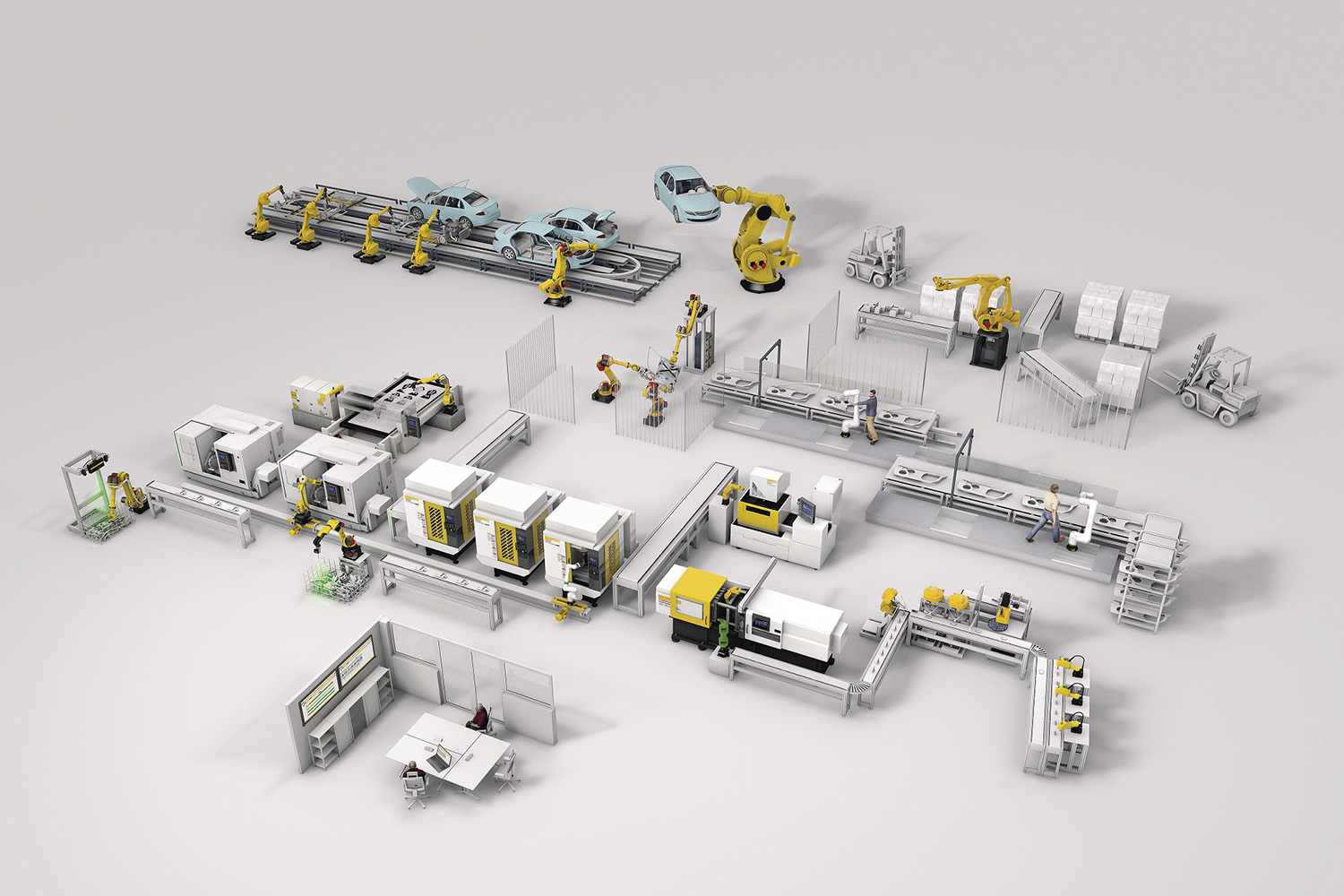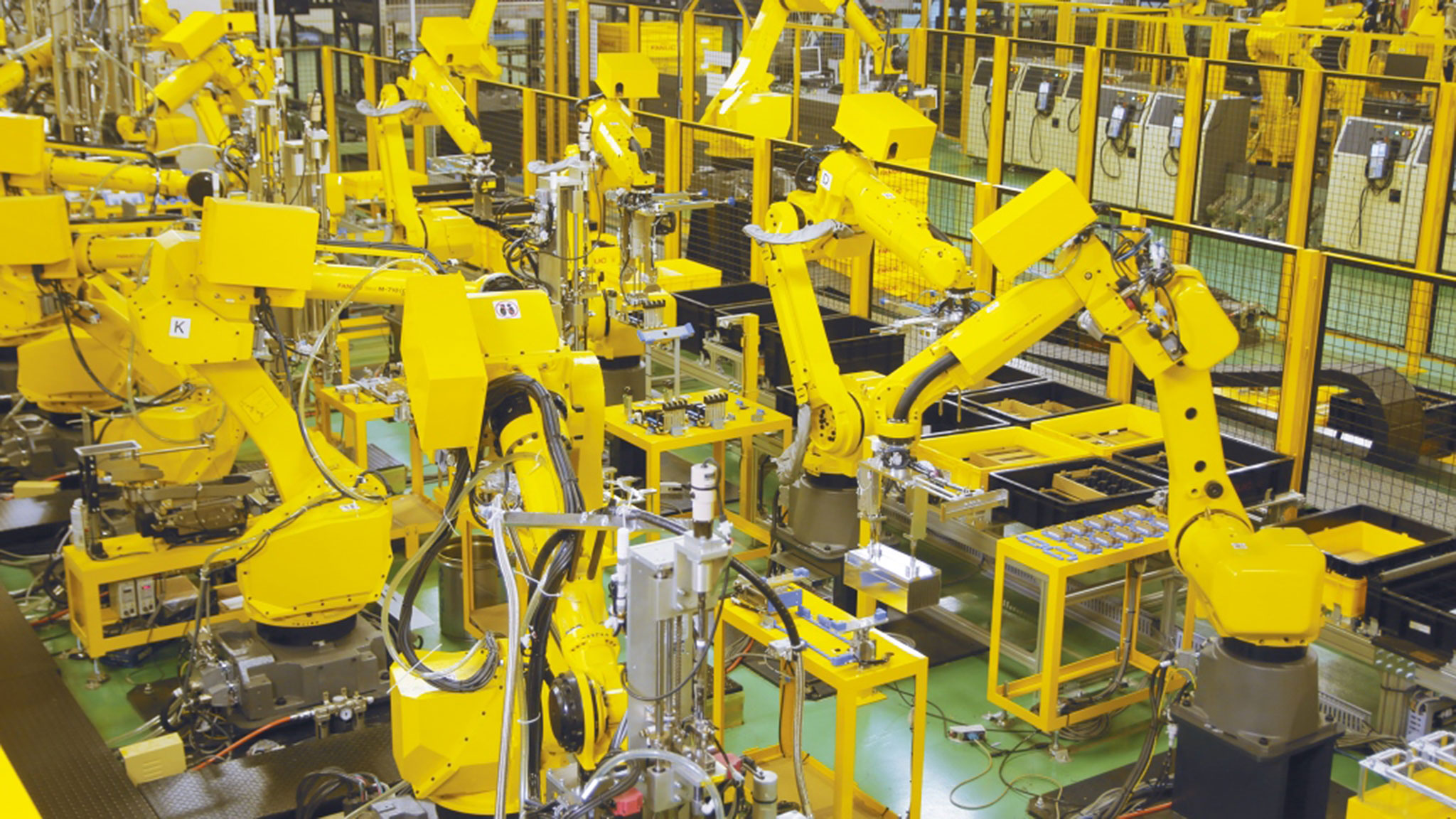


As factory automation develops, innovative methods and emerging technologies in this field are changing the production of many sectors. In this respect, the dark factory application, which does not need manpower, increases productivity and allows highly skilled employees to use their technical knowledge and skills in more competent jobs. Japan-based CNC, robot and machine manufacturer FANUC also carries out a production without human intervention with more than 4,600 robots thanks to this concept, which it has put into practice in its facilities covering approximately 2 million m2.
Dark factories, which are fully equipped with automatic systems and do not require human presence, are gaining more and more say in production day by day. Nearly no human intervention during the period from the entry of the raw material to the exit of the product from the factory also shapes the production process in FANUC's factory in Japan, which has increased its investments in automation technologies. FANUC, which maintains the concept of the dark factory with its more than 4,600 robots and captures the competitive advantage with increasing efficiency, is thus laying the foundations for the robot production of the future today.

Success in the dark factory concept is possible by managing the budget correctly
FANUC Turkey General Manager Teoman Alper Yiğit mentioned that it is important to define the dark factory concept correctly and to make the purpose suitable for the definition, and said, “It is not possible to come across an example where a factory is 100 percent automated, neither in Turkey nor globally. For this reason, it is not easy to talk about concrete data regarding this issue at the moment. However, there are certain examples that have managed to completely automate critical areas of production and that are on the way to end-to-end digitalization, from production to supply chain, from supply chain to sales. We can state the greatest benefit of these actions as error-free, flexible and efficient production. There is another point that should not be forgotten here: Being successful in the dark factory concept depends not on how much money you have or how much money you spend, but on spending your budget correctly and where it is needed. Therefore, companies have to efficiently install systems including robotic automation, machine automation and artificial intelligence technologies and determine what they need in this area so that they can improve their existing processes.”
Automation and digitalization are two forces that will make Turkey stand out in global competition
Pointing out that Turkey is still an untouched and developing market in terms of automation and digitalization, Yiğit continued his words as follows: “If we can take the right and timely actions, this will be an important opportunity that will bring Turkey forward in the global competition. At this point, in order to popularize the concept of the dark factory, companies should correctly identify the needs in this direction, create strategies that fit the needs, and perhaps most importantly, position the visionary workforce that will plan and implement this strategy. The most important point that we should not miss here is that no matter how fast technology advances, we are still the most important part of the system, who set up, construct and change these systems.”


